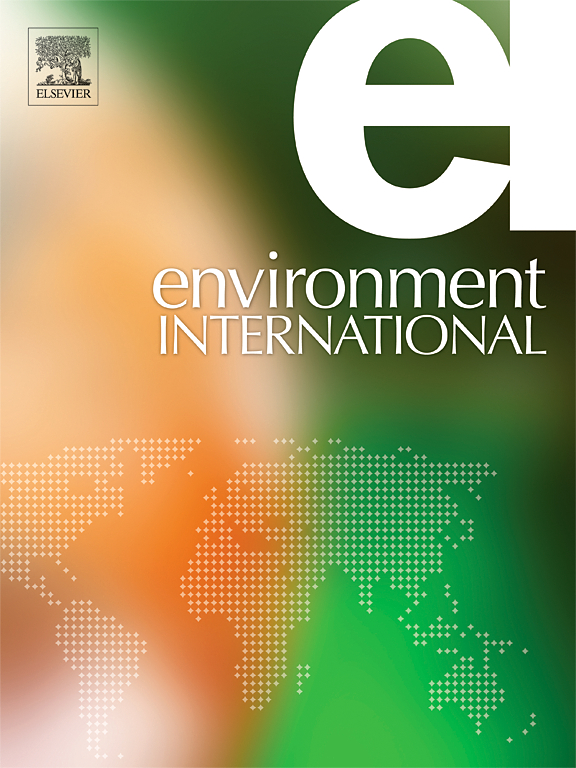Organophosphate pesticides modulate gut microbiota and influence bile acid metabolism in an in vitro fermentation model
IF 10.3
1区 环境科学与生态学
Q1 ENVIRONMENTAL SCIENCES
引用次数: 0
Abstract
Widely used organophosphate (OP) pesticides are shown to be of acute neurotoxicity; however, OP residues were frequently reported to be present in our living surroundings, posing a risk to human health. In this study, the effects of OP pesticides on gut microbiota mediated bile acid metabolism were investigated using a simple batch fermentation in vitro model, in which mouse fecal samples were incubated with six OPs and a mixture of bile acids. Samples were taken during the 24 h incubation and bile acid profiles were quantified by LC-MS/MS. OP treatment induced microbiota dependent alterations of primary and secondary bile acid levels, including especially substantially increased production of ω-muricholate and decreased levels of β-muricholate. As a result, phorate led to the most significant effects on the bile acid profile and was selected for further determination of accompanying effects on the bacterial profile by 16S rRNA sequencing. Results showed that richness of the Muribaculaceae spp. significantly decreased after the exposure to phorate. In summary, OP treatment could lead to perturbation of gut microbiota resulting in correlated changes in related bile acid metabolism.


在体外发酵模型中,有机磷农药调节肠道菌群并影响胆汁酸代谢
广泛使用的有机磷农药具有急性神经毒性;然而,据报道,我们的生活环境中经常存在OP残留物,对人类健康构成威胁。本研究采用体外简单分批发酵模型,研究有机磷农药对肠道菌群介导的胆汁酸代谢的影响,该模型将小鼠粪便样品与六种有机磷农药和胆汁酸混合物孵育。24 h孵育期间取样品,采用LC-MS/MS测定胆汁酸谱。OP处理诱导了初级和次级胆汁酸水平的微生物群依赖性改变,特别是显著增加了ω-寡胆酸的产生和降低了β-寡胆酸的水平。因此,选择磷酸对胆汁酸谱的影响最为显著,并通过16S rRNA测序进一步确定对细菌谱的伴随影响。结果表明,受磷胁迫后,蕨科植物的丰富度显著降低。综上所述,OP治疗可导致肠道菌群的紊乱,从而导致相关胆汁酸代谢的变化。
本文章由计算机程序翻译,如有差异,请以英文原文为准。
求助全文
约1分钟内获得全文
求助全文
来源期刊

Environment International
环境科学-环境科学
CiteScore
21.90
自引率
3.40%
发文量
734
审稿时长
2.8 months
期刊介绍:
Environmental Health publishes manuscripts focusing on critical aspects of environmental and occupational medicine, including studies in toxicology and epidemiology, to illuminate the human health implications of exposure to environmental hazards. The journal adopts an open-access model and practices open peer review.
It caters to scientists and practitioners across all environmental science domains, directly or indirectly impacting human health and well-being. With a commitment to enhancing the prevention of environmentally-related health risks, Environmental Health serves as a public health journal for the community and scientists engaged in matters of public health significance concerning the environment.
 求助内容:
求助内容: 应助结果提醒方式:
应助结果提醒方式:


